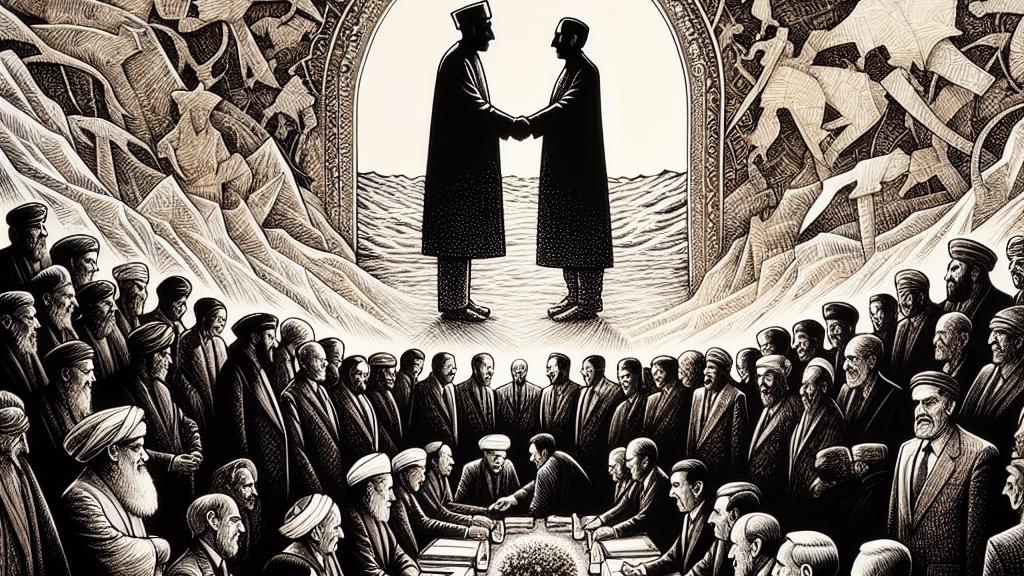US Diplomats Explore New Relationships in Syria
Overview
- In a historic meeting, US diplomats engaged with Syria's new leader, Ahmed al-Sharaa, marking a new chapter in diplomatic relations.
- Significant concerns linger regarding the new government's dedication to minority rights and gender equality, as the nation seeks assurance.
- This encounter represents a critical opportunity for fostering inclusive governance amidst a complex geopolitical backdrop.

A Historic Shift in Syrian Politics
Syria is witnessing a transformative moment as Bashar al-Assad, a leader whose shadow loomed for over two decades, has been ousted. In a groundbreaking development, US diplomats recently met with the new head of Hayat Tahrir al-Sham (HTS), Ahmed al-Sharaa, signaling a significant shift in international engagement with Syria. This meeting is not just an event; it is a potential turning point for both Syria and the region. Many hope it will lead to a more moderate and inclusive government. The world is looking to see if HTS will abandon its extremist roots and step toward embracing democratic values. As the Syrian people yearn for stability and progress, this diplomatic dialogue could either nourish hope or further complicate an already delicate situation.
Voices of Concern and Hope
Yet, amidst this budding optimism, critical concerns about the government’s commitment to human rights, particularly for women and minorities, persist. The dark legacy of the HTS’s affiliation with Al-Qaeda casts a daunting shadow over their intentions. Recent protests, particularly in areas like Qamishli, have erupted as voices rise against fears of a return to oppression. Demonstrators fervently chant, "The Syrian people are one!" and demand representation and justice, indicating a powerful societal push for genuine democracy. In these demonstrations, influential figures like Majida Mudarres have firmly stated, "Women have a big role in political life!" which underscores the collective desire for systemic change and equality. It is clear that the road ahead requires addressing these pressing voices for meaningful reform if any government is to gain the public’s trust.
Global Reactions and Future Pathways
In the broader international context, reactions from countries like Turkey and Iran highlight the intricate dynamics at play. Both nations have expressed the need for a balanced and inclusive governance structure that respects the rights of all communities in Syria. However, the challenges posed by Kurdish autonomy and armed factions represent significant obstacles. Amidst these complexities, the US diplomats' visit is laden with potential symbolic meanings and practical implications. It offers a platform for constructive dialogue and collaboration, an essential step toward facilitating peace and stability. As the world watches, it’s clear that this moment in Syria's history holds the promise of either new beginnings or continued turmoil, making the alignment of efforts crucial for a hopeful future.

Loading...